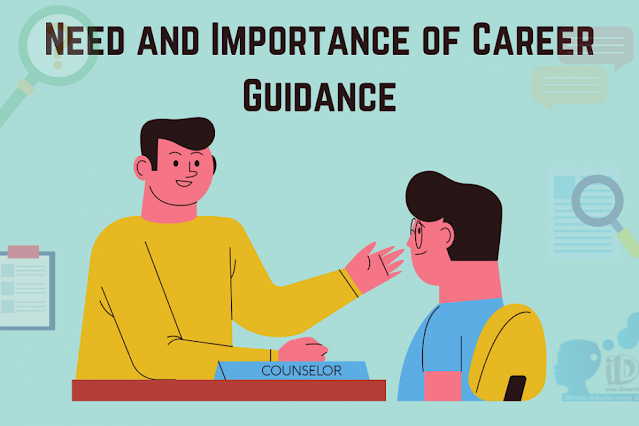Why career guidance is important for students
Career Guidance is a counseling program designed to help students choose the right career path based on their educational and professional options. It is a qualitative and quantitative assessment of knowledge, skills, information, and experience to identify available career options.
In India, there is limited awareness and information about
the various career options available to school leavers. The culture of going to
a career counselor is almost non-existent.
According to a recent survey, 93 percent of students were
aware of less than ten career options like engineering, medicine, law, finance,
IT, etc. In contrast, there are more than 250 career options available today.
In other words, most students have a very low level of awareness of many career
options.
Career counsellor needed
A free career counsellor or advisor specializes in exploring the
skill set and interest level of students and suggesting a balanced solution
combining the strengths of both.
Career counsellors rely on career interest or aptitude tests
as part of the research process to identify factors that influence career
interests, abilities, and values. In short, a career counsellor sets realistic
career goals for each student.
Students who seek professional help from a career counsellor
also benefit from sources and sources of career information, how to write a
resume, interview preparation, and networking basics.
One of the major changes that can be implemented in our education system is the mainstreaming of career guidance programs with career counsellors who specialize in guiding candidates to the job of their choice.
The mainstream career counselling approach should focus on a
'future-ready', 360-degree approach equipped with advanced tools and
technologies to involve all stakeholders, such as teachers, students, and
parents, in the counseling process.
Industry can also play an important role in guiding young
career aspirants by allowing them to interact with industry professionals who
can be the best 'practical' guides for career aspirants.
Example – A doctor can meet the students in the school itself
and explain the advantages and disadvantages of becoming a doctor to the
students. Also, experts from other fields like retail, engineering, or even the
armed forces can visit schools to guide students about the benefits and challenges
of their respective fields.
Alternatively, industry visits by students can be very useful in providing them with a perspective on different sectors. It also enables seamless connectivity of educational institutions with industry.




Comments
Post a Comment